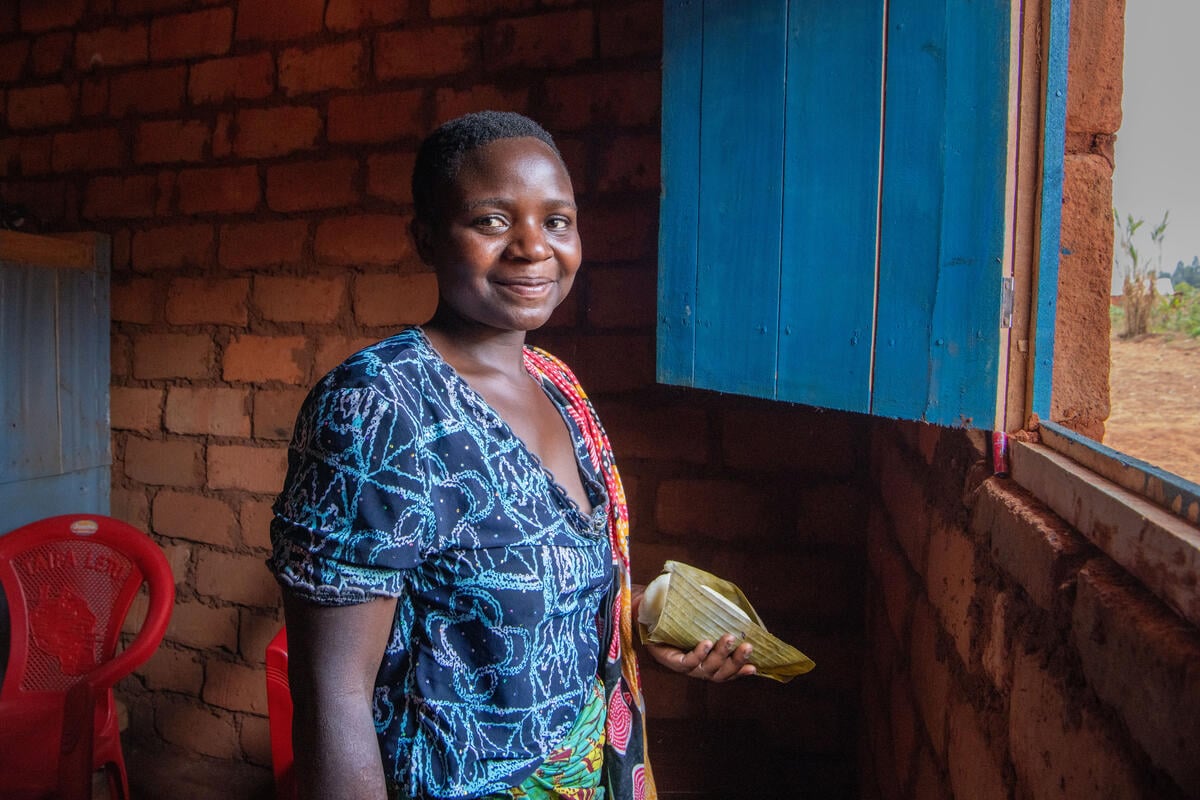Finally home: A former refugee’s journey to starting life afresh, two years after returning to her home country Burundi
Finally home: A former refugee’s journey to starting life afresh, two years after returning to her home country Burundi

Emelyne Kabura is among former Burundian refugees who have returned to Burundi and have been supported to start a fresh. The mother of three fled Burundi in Burundi in 2015 due to political instability and violence. She was only 18 years old.
Every morning, Emelyne embarks on her daily routine, patrolling her neighborhood to collect leafy weeds from nearby farms. Along the way, she engages in warm exchanges with her neighbors, a community she has called home for the past two years.
"Amahoro (peace)," the traditional Burundian greeting she says giving a friendly wave, before returning home to feed her rabbits with the freshly collected greenery.
Emelyne's journey to this routine was a challenging one. For nearly six years, she and her family were refugees in neighbouring Tanzania, where they had found safety after fleeing Burundi in 2015 due to political instability and violence.
"I was just 18, in grade 8, when we fled to Tanzania," she recalls.
Like in many refugee camps across the continent, life in the Mtendeli refugee camp in north-western Tanzania, was challenging, especially as she had just gotten married and was starting her family.
"We had limited freedom in the camp. I couldn't continue my education or set up any business," she says.
The emotional toll of being displaced from their home and uncertainty about the future of her young children further added to the challenges she faced.
However, hope flickered when she received news that Burundi was regaining stability.
Emelyne and her husband made the courageous decision to return home to start their lives afresh and help rebuild their country. She recalls feeling immense joy when they finally crossed the border into Burundi.
"When we came back through Manyovu border, I was very happy because I was back home, back to a country of milk and honey," she says.
Since 2017, more than 200,000 Burundian refugees have voluntarily returned to Burundi from neighboring countries, including over 40,000 who have found their way home to the southwest province of Makamba, where Emelyne and her family now reside.
Supported by UNHCR, the UN Refugee Agency, the Government of Burundi, and other partners, these returnees receive support in the form of building materials enabling them to build durable homes for their families. Additionally, returnees are provided with cash assistance to help them meet their immediate needs as well as invest in livelihood activities and diversify their income.
"With the cash grant, we purchased this plot of land. We then made bricks, erected walls, and used the iron sheets, poles, windows, and doors that were provided to us to complete our house," explains Emelyne.
She wisely invested part of the grant in a rabbit farming venture, which not only sustains her family but also funds her cassava business.
"Raising rabbits has been fruitful, although we faced losses. Despite that, I've managed to sell 15. The income allowed me to lease farmland. I've also ventured into palm oil and cassava bread businesses, enabling me to support my family," she says.
Mamadou Dian Balde, UNHCR's Director of the Regional Bureau of the East and Horn of Africa and the Great Lakes region saw first-hand Emelyne’s resilience and determination. During his visit to Makamba, he met her family as well as other more recent returnees at the Gitara transit center. Moved by their stories, Balde reiterates UNHCR’s call for increased support from donors and development partners to help Emelyne and thousands like her who have returned to rebuild their lives so that their return becomes a long-lasting solution.
“Those who return like Emelyne need access to financial support to set up or expand their livelihood activities; they need access to more services that the government provides so that they can continue living in dignity in their country. They need support for the entire community, not only from humanitarian actors but also from development partners.” said Balde.
Emelyne's journey, marked by fortitude and hope, stands as a testament to the strength of the human spirit and the transformative power of assistance from organizations like UNHCR.
“The communities that have opened their doors to welcome returnees deserve to be supported, to enable social cohesion and economic growth in the country. This is the way to go, to help end the cycle of displacement,” said Balde.
Additional reporting by Faith Kasina in Nairobi, Kenya










